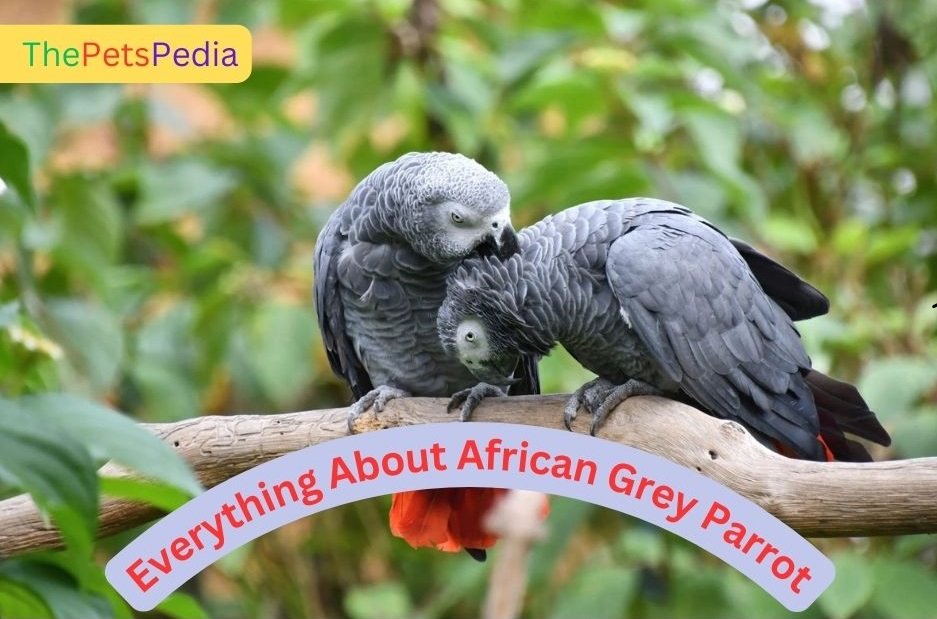The African grey parrot, often called the “Einstein of the Bird World,” is one of the most intelligent and beloved pet birds worldwide. Known for their exceptional ability to mimic human speech and their strong emotional bonds with owners, these parrots make captivating companions. Whether you’re considering welcoming an African grey into your home or already an enthusiastic owner, this guide covers everything you need to know—from their history to their care and behavior.
A Brief History of the African Grey Parrot
The African grey parrot (Psittacus erithacus) has been cherished by humans for centuries. Native to the rainforests of West and Central Africa, they have been an integral part of indigenous African cultures for thousands of years. The first European records of African greys date back to the 15th century when Portuguese explorers encountered them on the Canary Islands. Known for their sophisticated vocal abilities, these parrots were soon transported to Europe, quickly becoming popular pets among royalty and the elite.
The Congo African grey (CAG) and the Timneh African grey (TAG) are two main subspecies of African grey parrots. The Congo African grey is larger and more commonly kept as a pet, while the Timneh African grey, slightly smaller and darker in color, has a more limited range in the wild.
Physical Characteristics of African Grey Parrots
| Feature | Description |
| Size and Weight | 12 to 16 inches in length; 0.8 to 1.4 pounds |
| Color Varieties | Light grey body, red tail feathers (CAG); darker grey body with maroon tail feathers (TAG) |
| Wingspan | 18 to 20 inches |
| Beak and Feet | Strong black beak; zygodactyl feet (two toes forward, two toes backward) |
Temperament and Personality of African Grey Parrots
African grey parrots are renowned for their intelligence and complex personalities. They are curious, sensitive, and highly social birds that thrive on interaction with their human companions.
- Emotional Sensitivity: African greys are deeply attuned to their owners’ emotions. They can sense stress or tension in the household and may react to it. They need a stable and nurturing environment to feel secure.
- Intelligence: Greys are known for their remarkable cognitive abilities. They can learn to mimic not only words but also sounds they hear in their environment. Some can even use words in context, demonstrating a deeper understanding than mere repetition.
- Affectionate Companions: While not typically cuddly, African greys form strong bonds with their human families. They may follow their favorite person around the house, perch on their shoulder, and even seek head scratches.
- Playful and Engaging: These parrots need plenty of mental stimulation. They enjoy playing with puzzle toys, exploring new environments, and engaging in interactive play with their owners.
African grey parrots are not just pets; they are intelligent companions with hearts full of curiosity. Their voices can bridge the gap between humans and the avian world.-The Pets Pedia
Health and Lifespan of African Grey Parrots
| Aspect | Details |
| Common Health Issues | Feather plucking, calcium deficiency, respiratory infections |
| Preventive Care | Regular vet check-ups, balanced diet, stable environment |
| Lifespan | 30 to 50 years with proper care |
African greys can live long, healthy lives with proper care and attention. However, their sensitive nature makes them prone to stress-related behaviors like feather plucking. A balanced diet and regular vet visits are crucial to preventing health issues.
Housing and Environment for African Grey Parrots
Creating a comfortable and enriching environment for your African grey is essential for their well-being.
- Cage Size: These parrots need a spacious cage to accommodate their active lifestyle. A cage at least 24 inches wide, 24 inches deep, and 36 inches high is recommended for a single bird.
- Perches and Toys: To maintain foot health, provide a variety of perches of different sizes and textures. Rotate toys regularly to keep them engaged and prevent boredom.
- Lighting and Temperature: Place the cage in a well-lit area, avoiding direct sunlight. The ideal temperature range for African greys is between 65°F and 75°F.
- Cleanliness: Regularly clean the cage, food and water dishes, and perches. Change the cage liner at least once a week to maintain a healthy environment.
Diet and Nutrition Tips for African Grey Parrots
| Food Type | Importance |
| Pellets | Should make up about 50-70% of the diet for balanced nutrition |
| Fruits and Vegetables | Fresh produce is offered daily; avoid avocado and chocolate |
| Nuts and Seeds | Given sparingly as treats; high in fat |
| Calcium Sources | Cuttlebone or mineral blocks to support strong bones and beak health |
| Water | Fresh, clean water is available at all times, changed daily |
African greys are prone to nutritional deficiencies, so a varied and balanced diet is essential. Pellets are the best base for their diet, supplemented with fresh fruits and vegetables.
Training and Socialization of African Grey Parrots
African greys are intelligent birds that can be trained to perform tricks and even talk.
- Basic Training: Start with simple commands like “step up” to encourage your parrot to hop onto your finger. Patience and consistency are key.
- Talking: With regular interaction, African greys can learn to mimic words and understand their meaning. Repetition and positive reinforcement work best.
- Socialization: Gradually introduce your grey to new people, environments, and experiences to help them become well-adjusted and confident.
Exercise and Activity Needs
African greys are active birds that need plenty of opportunities to exercise.
- Flying Time: Allow your grey out-of-cage time daily to fly and explore in a safe environment. This exercise is crucial for their physical and mental health.
- Interactive Play: Engage with your parrot through games and toys. They enjoy puzzles, foraging toys, and anything that stimulates their curiosity.
- Social Interaction: African greys need regular interaction with their owners. Spend time talking to and playing with your birds daily to keep them happy and healthy.
How to Care for African Grey Parrots: Major Tips
Proper care is essential to keeping your African grey happy and healthy.
- Regular Vet Visits: Schedule annual check-ups with an avian vet to catch potential health issues early.
- Grooming: While African greys usually keep themselves clean, they enjoy a mist bath or a shallow dish of water. They should also keep their nails trimmed and monitor their beak and feather condition.
- Mental Stimulation: Regularly introduce new toys and rotate them to stimulate your parrot mentally. Boredom can lead to behavioral issues like feather plucking.
Why African Grey Parrots Make Great Pets
African grey parrots are ideal companions for experienced bird owners who understand their complex needs.
- Highly Intelligent: Their remarkable cognitive abilities make them fascinating pets. They can learn to talk, solve puzzles, and even perform tricks.
- Strong Bonds: Greys form deep, lasting bonds with their owners and can become loyal companions.
- Long Lifespan: With proper care, African greys can live for several decades, providing years of companionship and joy.
Fun Facts About African Grey Parrots
- Mimic Masters: African greys are among the best mimics in the bird world, capable of learning hundreds of words and phrases.
- Emotional Sensitivity: They can sense their owners’ moods and react accordingly, making them very empathetic companions.
- Incredible Memory: African greys have excellent memories and recall names, faces, and past events.
Final Thoughts
African grey parrots are not just beautiful and entertaining; they are also intelligent and affectionate pets. Whether you’re drawn to their ability to mimic speech, playful nature, or striking appearance, African greys make excellent companions for those willing to invest time and care. By providing them with the right environment, diet, and attention, you’ll be rewarded with a loyal and engaging feathered friend who will bring joy to your life for many years. This guide has covered everything you need to know about African grey parrots, from their history and physical traits to their care and training. Here’s to a long and happy relationship with your remarkable parrot!



